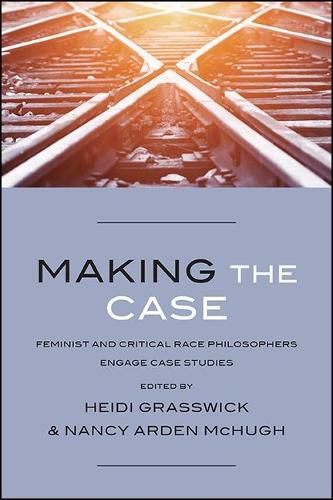Readings Newsletter
Become a Readings Member to make your shopping experience even easier.
Sign in or sign up for free!
You’re not far away from qualifying for FREE standard shipping within Australia
You’ve qualified for FREE standard shipping within Australia
The cart is loading…






Making the Case brings together established and emerging philosophers who use case studies to address a variety of contemporary social justice causes. The contributors show both the depth and breadth of work in this area and highlight the distinctive approaches that feminist and critical race theorists, in particular, have pursued. For these theorists, the choice of the kinds of cases analyzed matters, not only pushing philosophy as a field to foreground the challenges facing marginalized groups but also affecting the kind of philosophy that results. This ensures that their theories do not reproduce the conceptual frameworks of dominant groups. By using thickly described cases, as opposed to the thinly described or hypothetical situations that have been the historic mainstay of philosophy, the contributors strive to create philosophy that never strays too far from the complexities of people’s lives on the ground. The book provides philosophers with a host of methodologies, theories, and practical examples for use in social justice case work, with topics ranging from census design and gender bias in science to incarceration and the spate of recent police killings of black men and women.
$9.00 standard shipping within Australia
FREE standard shipping within Australia for orders over $100.00
Express & International shipping calculated at checkout
Making the Case brings together established and emerging philosophers who use case studies to address a variety of contemporary social justice causes. The contributors show both the depth and breadth of work in this area and highlight the distinctive approaches that feminist and critical race theorists, in particular, have pursued. For these theorists, the choice of the kinds of cases analyzed matters, not only pushing philosophy as a field to foreground the challenges facing marginalized groups but also affecting the kind of philosophy that results. This ensures that their theories do not reproduce the conceptual frameworks of dominant groups. By using thickly described cases, as opposed to the thinly described or hypothetical situations that have been the historic mainstay of philosophy, the contributors strive to create philosophy that never strays too far from the complexities of people’s lives on the ground. The book provides philosophers with a host of methodologies, theories, and practical examples for use in social justice case work, with topics ranging from census design and gender bias in science to incarceration and the spate of recent police killings of black men and women.